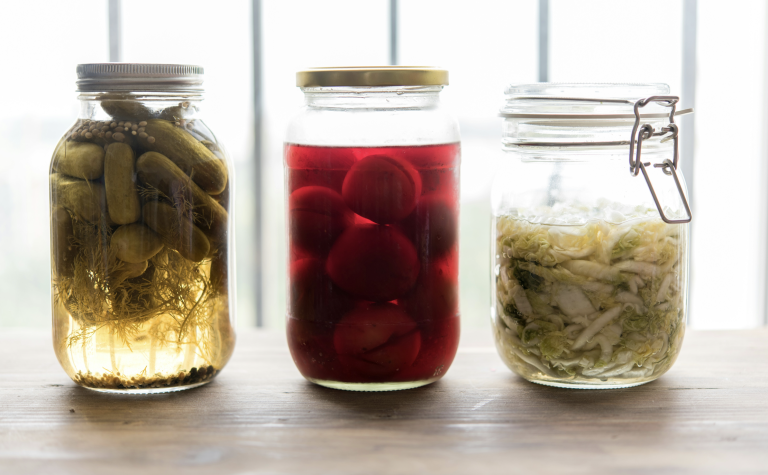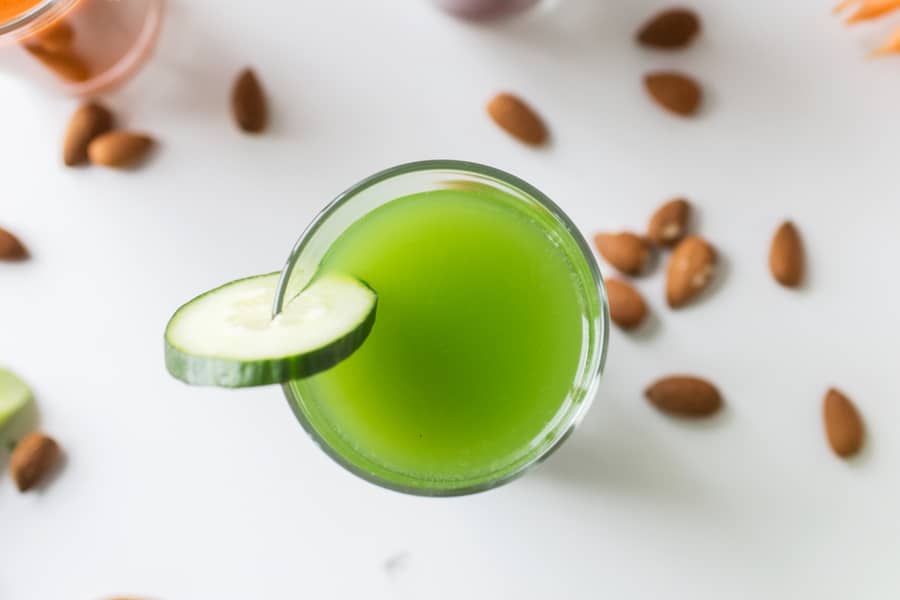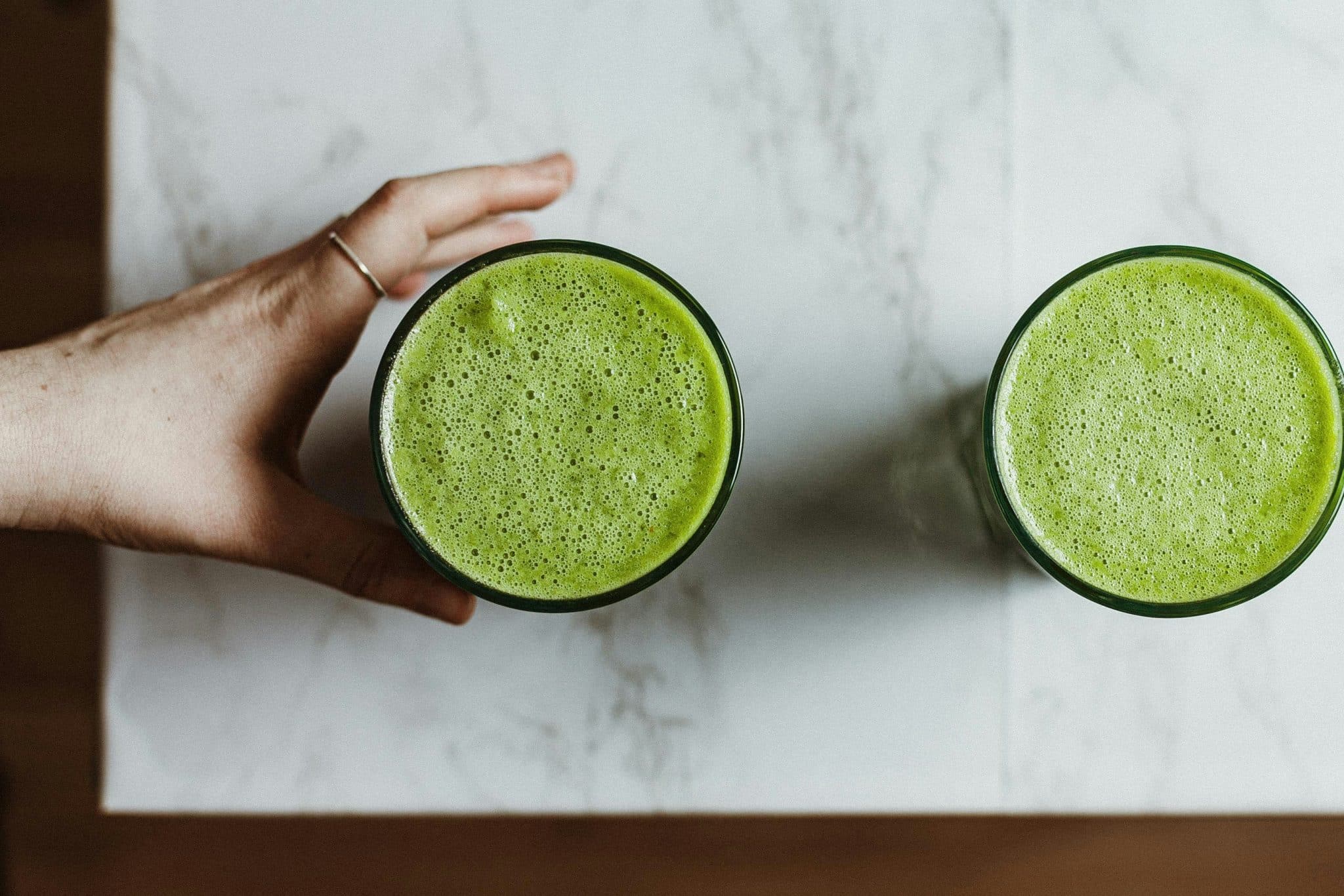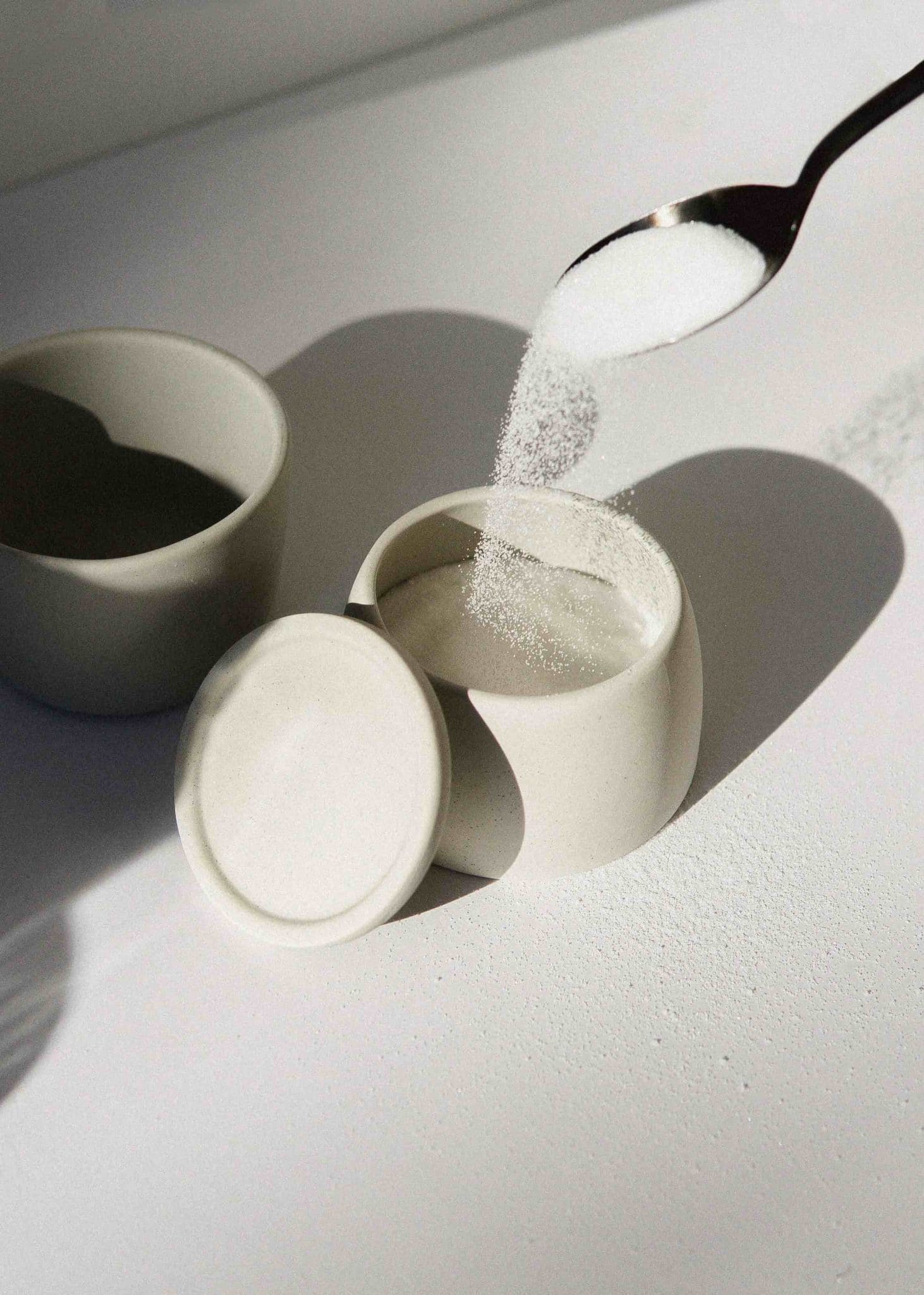Our body has a natural ability to detoxify. This process includes steps such as sweating, breathing, urination, and defecation. Even when the bodily systems function properly, toxins can still accumulate over time.
The gut plays a central role in maintaining optimal health, serving as the primary site of digestion, nutrient absorption, and waste elimination. When waste accumulates in the digestive tract, it can lead to the buildup of toxins, inflammation, and inefficient digestion. That’s why a gut cleanse can help ensure your digestive system is functioning at its best.
Understanding Gut Health and Why Cleansing Matters
The gut is home to a big community of around 100 trillion bacteria, yeast, and viruses. These microorganisms influence everything from digestion to our immune responses.
Cleansing and supporting our gut is essential for our health. It can promote digestive comfort while also bolstering the immune system, supporting brain health, enhancing skin appearance, increasing serotonin production, and improving mental well-being.
Furthermore, a clean gut helps sustain energy levels, helping us feel more vibrant and engaged in our daily activities.
What is Gut Health?
Gut health refers to the overall functioning of your digestive system and the balance of the tiny microorganisms that reside within it. Think of your gut as a busy ecosystem: when everything is in harmony, you digest food more efficiently, feel more energised, and your body functions more smoothly.
The friendly bacteria in your gut, known as the microbiota, do much more than break down what you eat. They support your immune system, communicate with your nervous system, and even influence your mood and mental well-being.
However, when this balance is disrupted and certain bacteria grow excessively, it can disrupt how you feel both physically and emotionally. That’s why keeping your gut in good shape is such an important part of staying healthy overall.
The Role of Your Gut Microbiome
The microbiota represents the community of microorganisms, including bacteria, viruses, fungi, and protozoa, that inhabit our bodies and the surrounding environments. Meanwhile, the microbiome encompasses the genetic blueprints of these microorganisms and their dynamic interactions with our surroundings.
The gut microbiota plays an important role in shaping our digestion, immune responses, and metabolic functions. By examining the genetic foundations of these microorganisms, we gain invaluable insights into their crucial contributions to our health.
However, imbalances in the microbiota, known as dysbiosis, can have profound consequences, including the development of inflammatory diseases, metabolic disorders, and immune-related conditions. Understanding and maintaining a healthy microbiota is not only beneficial but also vital for our health.

Signs You Need a Gut Cleanse
- If you have digestive issues such as bloating, gas, constipation, diarrhea, or irregular bowel movements.
- If you have low energy or fatigue, poor gut health can affect nutrient absorption and overall energy levels.
- If you have food sensitivities and increased intolerance or reactions to certain foods.
- If you have skin problems such as acne, eczema, or other skin irritations.
- If you have brain fog or mood swings, an unhealthy gut can impact mental clarity and mood.
- If you have unexplained weight changes, such as difficulty losing or gaining weight.
- If you have cravings for sugar or processed foods, an imbalanced gut bacteria can drive unhealthy cravings.
- If you have bad breath or body odor, accumulated waste may manifest as unpleasant odors.
Benefits of Gut Cleansing
- Improves digestion and reduces bloating, gas, and discomfort.
- Enhances the uptake of vitamins, minerals, and other essential nutrients.
- Supports the body in naturally regulating weight by removing accumulated toxins.
- Helps eliminate harmful substances caused by processed foods and environmental factors.
- Promotes gut flora balance and the growth of beneficial bacteria to support immune function.
- Helps prevent and reduce the risk of constipation, diarrhoea, and other bowel problems.
- May lower the risk of chronic conditions like irritable bowel syndrome, hemorrhoids, and inflammation-related gut disorders.
What is a Gut Cleanse?
A gut cleanse is a beneficial approach to enhance digestive health by helping to eliminate toxins, waste, and harmful bacteria from the gastrointestinal tract.
This approach involves making dietary changes, incorporating supplements, or using specialised products designed to clean the colon to help promote a balanced gut microbiome. Many individuals find that a gut cleanse can alleviate issues such as bloating, digestive discomfort, and fatigue.
To maximise the potential benefits, it’s important to understand the science behind gut health and consult with an expert. This will help ensure that a gut cleanse is tailored to your individual needs and contributes effectively to your overall well-being.
Gut Cleanse vs Gut Detox: Understanding the Difference
A gut cleanse and gut detox both tend to focus on your digestive system, eliminating certain foods and substances (such as caffeine, alcohol and smoking) for a specified period to help your body’s natural ability to rejuvenate itself, flush toxins, and eliminate free radicals to support your digestive system.
How Gut Cleansing Works
A gut cleanse is designed to remove accumulated waste, toxins, and imbalances from the digestive system. Various methods, including dietary adjustments, herbal supplements, probiotics, and colon hydrotherapy, can support this process. A gut cleanse:
Stimulates Bowel Movements
Gut cleansing methods often use natural agents like fiber, herbs, or liquids to encourage regular bowel movements, helping the body expel trapped waste.
Hydrocolon or Colon Hydrotherapy
This involves gently flushing the colon with water to remove accumulated fecal matter and toxins. It can be a highly effective way to cleanse the lower and upper segments of the intestines.
Removes Toxins
Waste and undigested food can accumulate over time, allowing harmful bacteria and toxins to build up. Gut cleansing therapies help flush these out, reducing toxin load.
Supports Healthy Gut Flora
Many gut cleanses include prebiotics or probiotics to restore beneficial bacteria, improving digestion, immunity, and nutrient absorption.
Reduces Inflammation
By removing irritants and harmful substances, gut cleanses can lower intestinal inflammation, relieving bloating, discomfort, or digestive disorders.
Promotes Better Digestion and Nutrient Absorption
A cleaner gut allows food to move more efficiently, improving the body’s ability to absorb vitamins, minerals, and other essential nutrients.
Enhances Overall Detoxification
Gut cleansing supports the body’s natural detox systems, complementing liver, kidney, and lymphatic functions, to maintain optimal health.

How to Clean Your Gut: Step-by-Step Methods
So, what can you do to clean your gut and improve your gut health, and where should you start? Each individual may have different needs based on their digestive health and overall physiology. Still, these would be a good start to having a healthier digestion.
There are several steps you can take to improve the functioning of your digestive system. Here are some basic and important ones to give you an idea about what you can do to improve your gut health:
1- Practice mindful eating.
Believe it or not, our eating habits -from our movements to focus- really affect our digestion. It can be challenging for us to keep track of these and avoid distractions while eating, especially during our busy daily routines. Practising even the most basic mindful eating habits could make a massive difference in your digestion, weight management, and appetite control. Focus on chewing your bites thoroughly, eating slowly, sitting while you eat, and paying attention to your food.
2- Take probiotics and prebiotics.
Probiotics are living bacteria found in our gut that offer various health benefits, help break down food, and support digestion. Certain foods and supplements have probiotics. In comparison, prebiotics are fibers that feed probiotic bacteria, supporting a healthy gut microbiota. By adding more fermented foods like sauerkraut, kimchi, kombucha, or kefir to your diet, you’ll be consuming plenty of probiotics and improving your gut flora.
3- Try a vegan diet or eating more plant-based foods.
There are numerous health benefits to a vegan diet, including its positive effects on the gut microbiota. A vegan diet is also by default dairy-free and therefore lactose-free, which is suggested to improve digestion. Eating plant-based foods fosters a healthy gut microbiota and, in turn, could lead to improvements in your overall digestive health. Easy-to-observe benefits include reduced gas and bloating, easier weight loss, and improved overall digestion. Not to mention, a plant-based diet is kinder to the environment and more ecologically sustainable!
4- Trigger the MMC process by avoiding food for 4 hours after meals.
While in the fasted state, our digestive system begins the migrating motor complex (MMC) process that helps clean the residual material in the digestive tract. Simply not eating anything for a few hours after your meals will trigger MMC and help your gut to cleanse.
Natural Ways to Cleanse Your Gut
Avoiding certain foods is recommended to improve overall gut health and address specific health issues. You can go gluten-free, fructose-free, lactose-free, dairy-free, vegan, sugar-free, or alcohol-free for a week. Following such diets may help you detox and improve your gut and digestive wellness.
Following guided detox plans would have many benefits. Especially going gluten-free, lactose-free, and fructose-free for a week works wonders on your digestive health. Guided detox plans can support healthy bacteria in your gut microbiome, ease digestion, reduce gas and bloating, and help with weight management. To learn about gut cleansing and detoxification, check out the Master Cleanse program.
Stress Management and Gut Health
Did you know that cortisol could have adverse effects on your digestion? Known as the ‘stress hormone’ and released upon rough situations, cortisol redirects the blood flow to more vital organs like the heart, brain, and muscles, away from the digestive tract. Therefore, excess or extended release of cortisol would keep the much-needed blood flow away from the gastrointestinal tract, hindering digestion.
Stress could trigger stomach cramps, nausea, indigestion, gas, and other kinds of digestive issues. Even worse, stress and cortisol exacerbate the symptoms of bad gut health. Let’s check out how stress affects different components of digestion:
1- Gut Microbiome: Our gut microbiome and stress response have a bidirectional relationship. Our gut microbiome may affect how we experience a stress response. Similarly, our neurochemicals affect the composition of our gut microbiome that could lead to digestive problems.
2- Intestinal Activity: Intestinal activity encompasses both the passage of food from the gastrointestinal tract and the absorption of nutrients from food as the food passes through. Stress response may mess up both processes, altering the duration of food passing through the intestines and affecting the nutrient absorption process. Such an effect of stress on intestinal activity may lead to either constipation, diarrhea, or malabsorption.
3- Heartburn: You probably heard about emotional eating. You could also guess how an emotional appetite could easily cause overeating and its side effects. In that case, heartburn is one of the first symptoms that come to mind. When we overeat, eat more than our body needs and can handle, we may experience a range of digestive problems. Mainly because we often turn to simple carbs during an emotional eating episode, the digestive symptoms get even worse! Some common simple carbs are sweets, pastries, bread, fast food, chips, to name a few.
4- Stomach Cramps & Vomiting: As stated above, stress response amplifies the sensation of adverse digestive symptoms. That means our stomach feels irritated much easier, and we may experience stomach cramps and even nausea and vomiting in intensely stressful situations.

Probiotic Supplements: What to Look For
There are many vegan probiotic options to support your gut health. While fermented dairy products like kefir are well-known sources of probiotics, there are widely accessible plant-based probiotics. Fermented vegan foods like sauerkraut, kimchi, kombucha, and many others are excellent sources of vegan probiotics. Make sure to consume vegan probiotics regularly to improve your gut microbiota.
Symptoms of Bad Gut Health to Watch For
Digestive wellness is key to many components of gut health. As we’re progressing towards a healthier version of ourselves, a healthy gut will be one of the most effective tools to support us. Our complex digestive system greatly impacts our body and mind from mental health to supporting immune system function.
To begin with let’s run through a primary indicator of digestive health: your poop! How frequent you poop, your stool color and texture; these are the basics of checking on your gut health. Always keep these in mind after your bathroom sessions:
Some of us don’t even know how frequently it is considered healthy to poop! Without knowing, many people experience constipation, as that’s what they consider normal after all those years. As a rule of thumb, defecating anywhere from 3 times a day to 3 times a week is considered normal. If you believe you may have chronic constipation or diarrhea, make sure to consult a medical practitioner.
The texture and colour of your stool reveal a great deal about your digestive health. First of all, you can check out the Bristol Stool Chart any time to get an idea about what your stool tells about your health. Typically, it should be smooth, as shown in Types 3 and 4 of the Bristol Stool Chart.
Regarding the color, keep in mind that it could be affected by the foods you eat; otherwise, shades of brown and green are considered normal. If you have pale-colored stool, have blood in your stool, or have chronic diarrhea or constipation, you should consider consulting a medical practitioner.
Digestive Symptoms
Causes of an unhealthy gut are linked to various health conditions. One of the most common causes of an unhealthy gut is having inadequate amounts of good bacteria and too many ‘bad’ bacteria in the gut flora. This microbial imbalance is called dysbiosis.
- Dysbiotic conditions occur largely due to:
- Environmental toxins that increase parasitic growth
- Chronic stress that alters the digestive secretion
- Sudden changes in dietary habits
- Medication use and similar.
Dysbiosis is strongly linked with digestive diseases such as irritable bowel syndrome, chronic constipation and chronic fatigue.





